The art of "thanks", "despite" and "despite" psychiatric experience
Categories: Culture
By Pictolic https://pictolic.com/article/the-art-of-thanks-despite-and-despite-psychiatric-experience.htmlPsychiatric experience is traditionally called the experience of experiencing a mental disorder. In other words, some kind of diagnosed deviation from the normal state and behavior of a person in society - schizophrenia, clinical depression, neuroses, psychoses, and so on. Among the famous people in painting who have encountered something like this, one can recall Mikhail Vrubel, Gerard Garust, Vincent Van Gogh.
However, along with the recognized classics of world painting, such an experience is not alien to dozens of little-known reclusive creators. Such artists are usually called "creators" and are classified as outsider artists (outsider art) or art brut (fr. art brut - raw art). As a rule, the creators of art brut do not even suspect that they are creating art, the talent of these people is usually noticed by someone else. In most cases, the creators of art brut have never been engaged in creativity before the illness and do not have a special art education.
Art therapists "heal" the souls of their patients with art, and someone is "treated with art" without outside help. "Thanks", "despite" and "despite" psychiatric experience — great artists and patients of psychiatric hospitals create something that freezes the heart. We will tell you about some of them below.
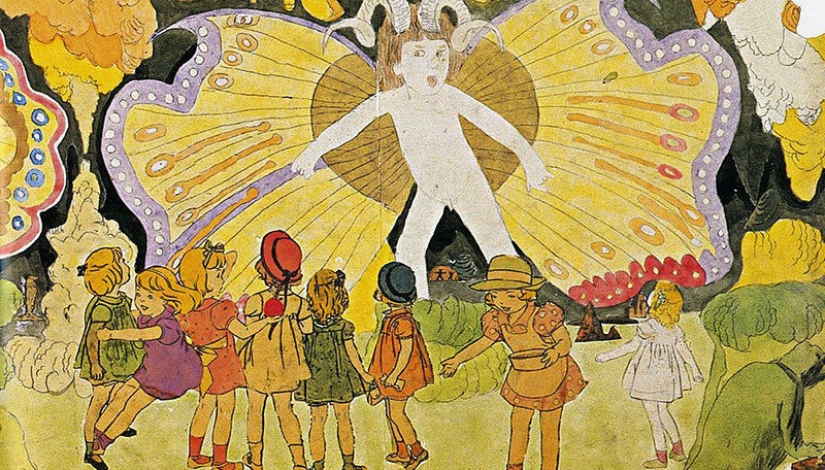

1. August Walla is an Austrian outsider artist who spent many years in the psychiatric clinic "Googling" near Vienna. Walla painted on the walls of his room, the hospital and neighboring houses, on interior items and sheets of paper.

2. Drawing and text are inextricably linked in the works of Auguste Vallat. The artist collected dictionaries of foreign languages, from which he borrowed words and expressions, invented neologisms and unusual language idioms. Valla considered his work as a protective talisman against dangers, bad people, madness and death.
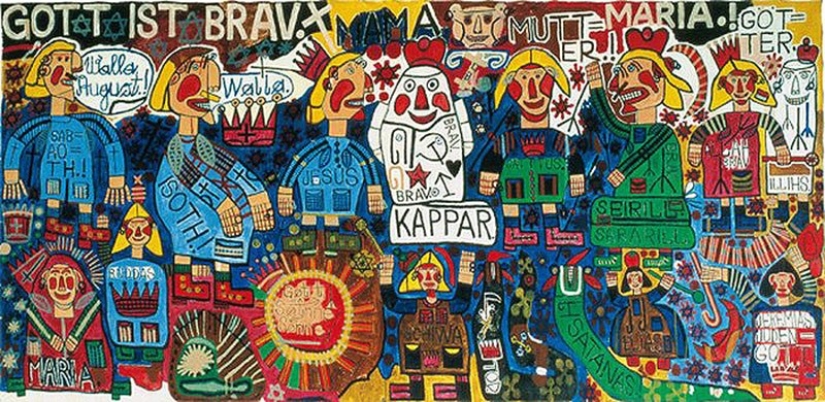
3. The representative of outsider art with a worldwide reputation, Henry Darger, was born in Chicago. He lived an inconspicuous life, was a strange and unsociable person. Among the traumatic memories of Darger's childhood are the death of his mother and the subsequent disappearance of his younger sister (the girl was adopted by someone else's family), the death of his father and the placement of Henry in an institution for children with mental disabilities.
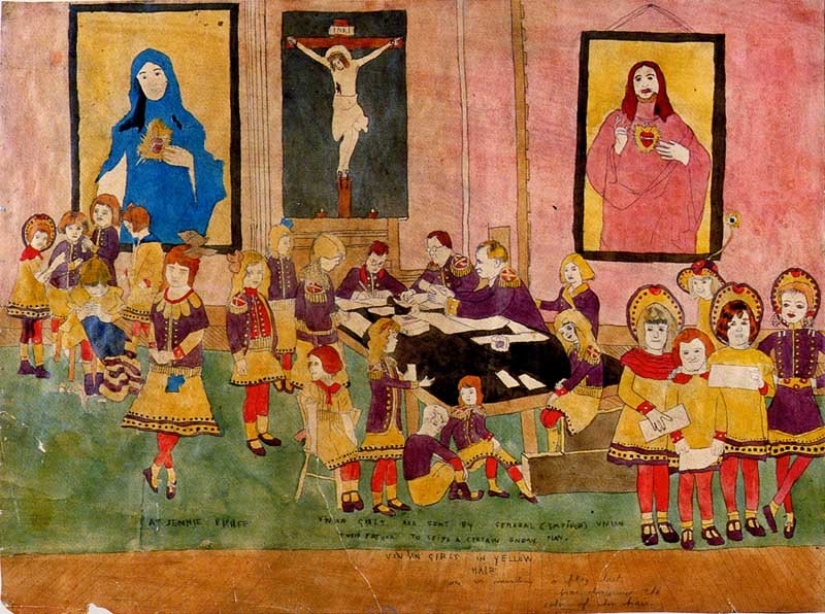
4. Being already a mature person, Darger will write that he never wanted to grow up and, if he had his will, would prefer to remain a child forever. Darger spent most of his adult life as an auxiliary worker, working in one hospital or another: washing dishes, taking out garbage, carrying bandages and doing whatever was asked.
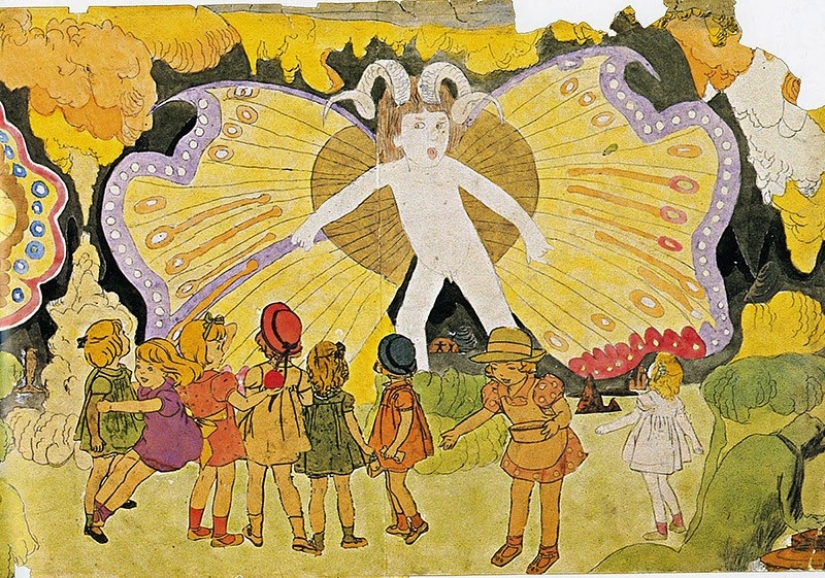
5. No one knew that, returning to his small apartment, Henry Darger had been writing his magical novel for years about the struggle of good and evil, children and adults, angels and demons. The novel "In an Imaginary Kingdom" is a whole world created by Darger from texts and illustrations, a world into which its creator escaped from the monotony of everyday life. Darger's drawings and texts were found by chance just before the death of their author. Darger was in the hospital when an admiring neighbor ran into his room shouting: "This is great!" "It's too late," the artist whispered.
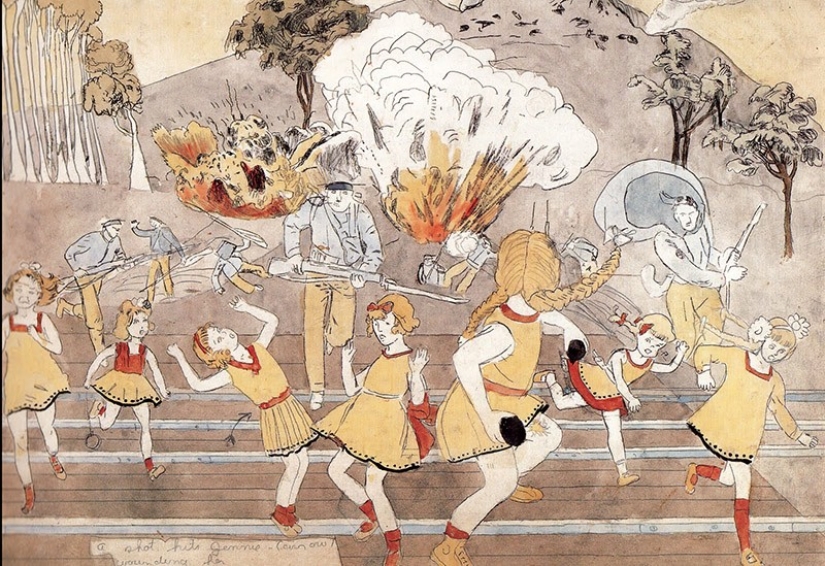
6. Alexander Pavlovich Lobanov is a Russian outsider artist who suffered from deafness and dumbness, spent 56 years of his life in a psychiatric clinic. In Russia Lobanov is known to a rather narrow circle of interested persons, while in the West his works are kept in private and museum collections.

7. Alexander Lobanov often portrayed prominent political figures, but most of all he loved self-portraits. In the works of the artist, there is almost always a branded rifle, with which Lobanov armed his heroes.

8. Deafness and dumbness prevented exploring the surrounding world, but Alexander Lobanov created his own, in which there are many weapons and strong people. His heroes are not aggressive, they stand guard over order, goodness and justice.

9. Auguste Vallat, Henry Darger and Alexander Lobanov created their works "thanks" to the disease, for them creativity is a necessity, an important mission associated with building their own world.

10. Doing creative work "in spite of" mental illness is art therapy. Her goal is to better understand herself or alleviate mental suffering, so the products of art therapy — painting, sculpture, collage - are secondary to this main goal.
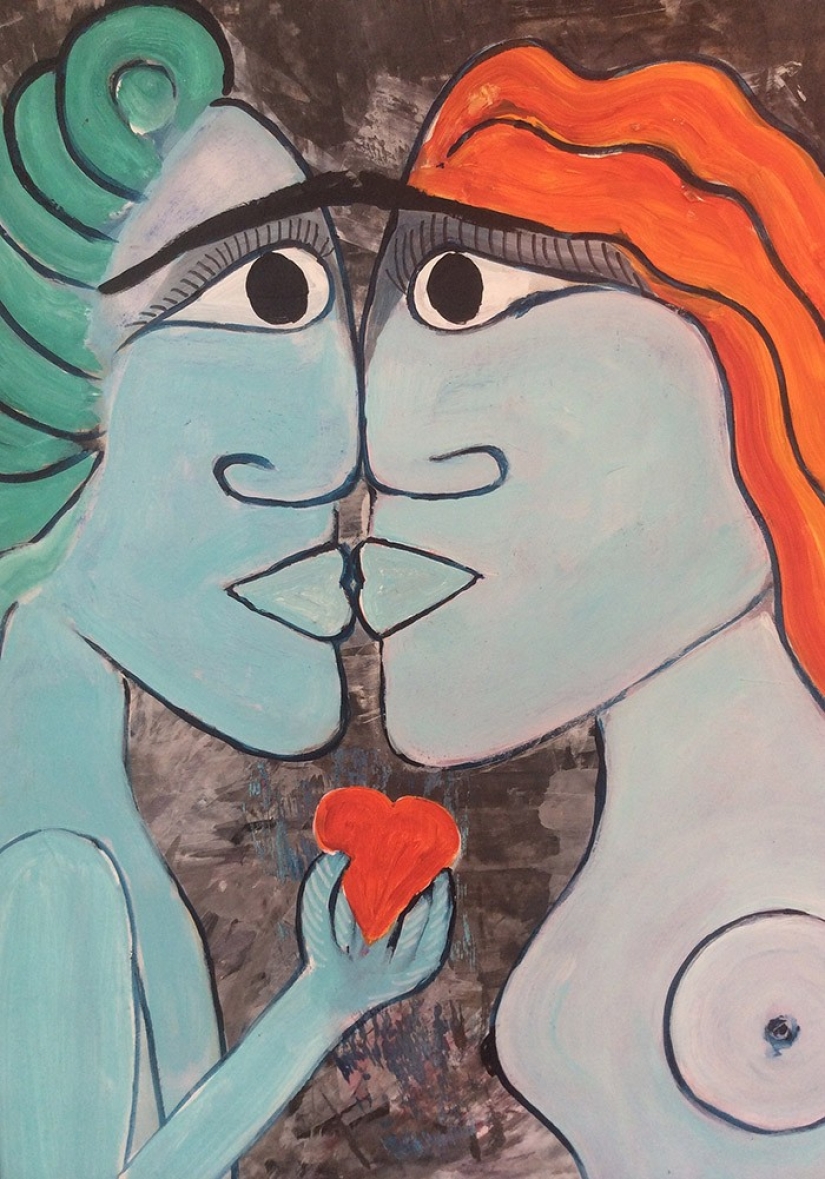
11. Art therapy classes are usually conducted by qualified specialists: psychologists, psychotherapists, psychiatrists. But many testify that they managed to do without outside help: painting classes cured them of depression and bad mood. Renata Wu from Shanghai also tells about this.
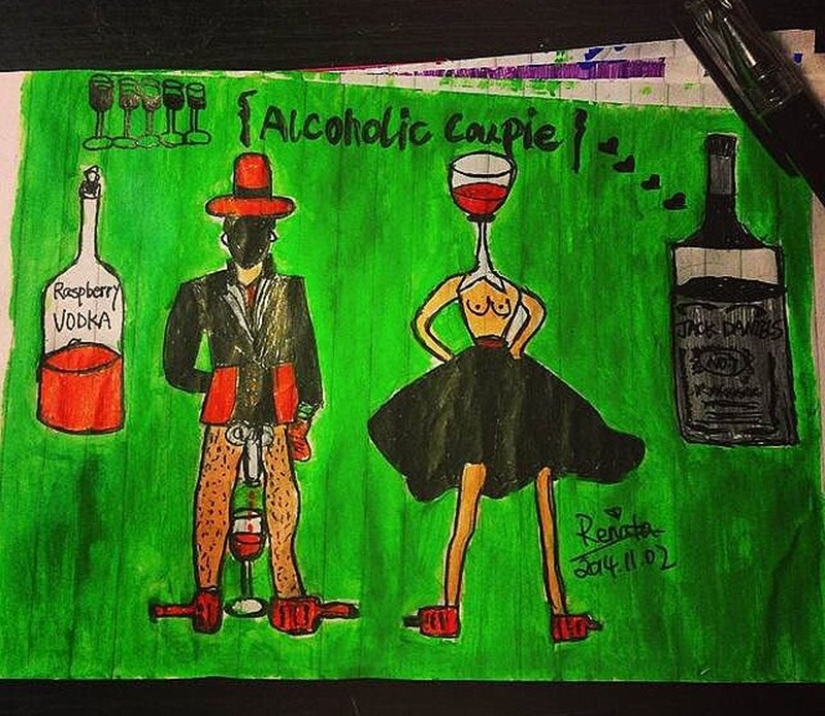
12. Vincent Van Gogh is the best example of an artist who created "despite" psychiatric experience. He wrote before and during his illness, despite sudden mood swings, depression and alcohol abuse. Van Gogh would have become an artist anyway, he saw his destiny in this. His painting was not born from the depths of the disease and not because of it. Van Gogh painted for the sake of painting itself, in order to create art objects, he was sure that his work would someday be appreciated - and he was right.
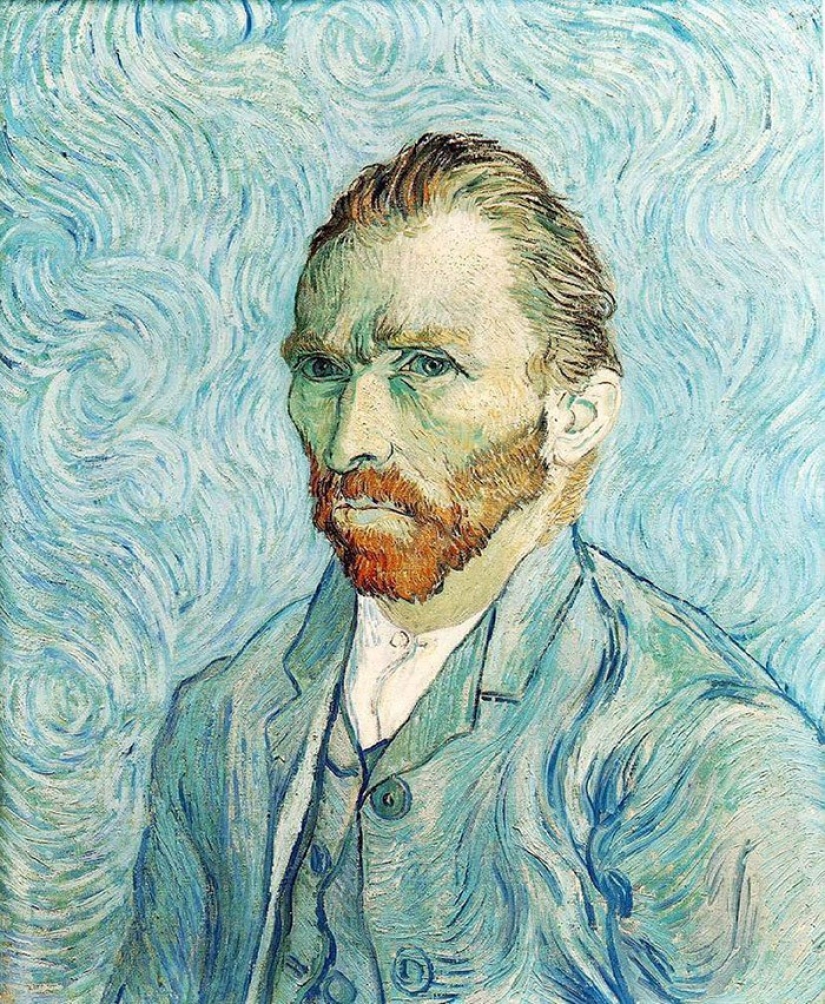
13. Gerard Garoust is a modern French artist, sculptor and decorator who has been suffering from bipolar affective disorder for many years, but this did not prevent him from gaining recognition and wide fame. In 1983, it was Garust who decorated the ceiling of the presidential apartments in the Elysee Palace. Gerard Garust writes "despite" the disease, but notes: "My illness has always only hindered the creative process, most of the works that I created in a state of manic excitement, I destroyed, being dissatisfied with the result. Fortunately, modern medicines provide me with long "light" intervals during which I can work productively."
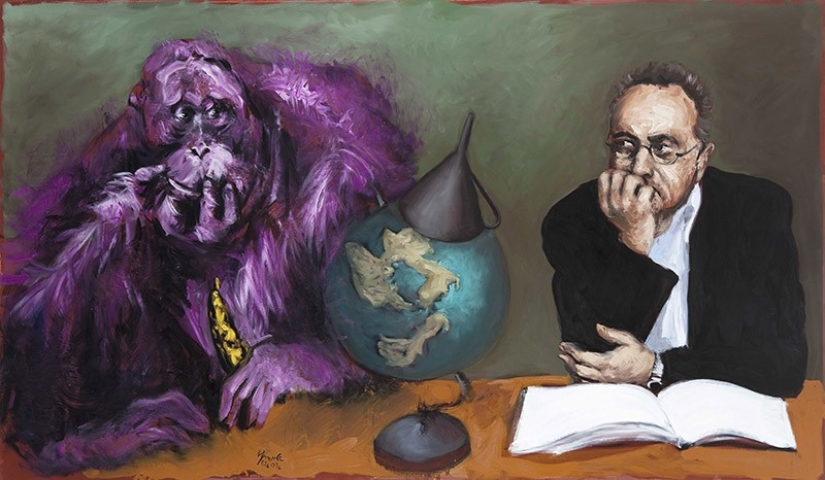
14. "Despite" the disease, the modern Greek artist Lucas also writes. At the age of 20, he left Greece for Italy, it happened right after the breakup with his girlfriend. Lucas did not tell anyone about his departure, the artist did not know the language, he found himself alone in a foreign country, he had nowhere to live, nothing to eat. Lucas returned home, dressed in rags, mentally and physically exhausted, he cried all the time. The parents persuaded the young man to seek psychiatric help. Doctors diagnosed depression, prescribed pills and psychotherapy. Lucas still visits a psychotherapist, but he managed to refuse medications.
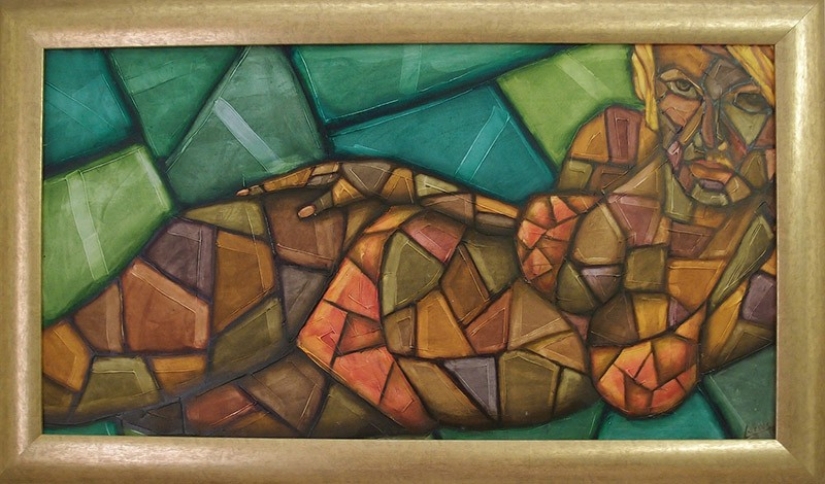
15. In Russia, you can see the works of outsider artists who create "thanks" and "in spite" of psychiatric experience at exhibitions organized by the art project "OTHERS". Participants of the art project "OTHERS" (Yaroslavl) from the archives of the psychiatric hospital compiled a collection of works by patients of the clinic and organized an art therapy studio for patients and their relatives.
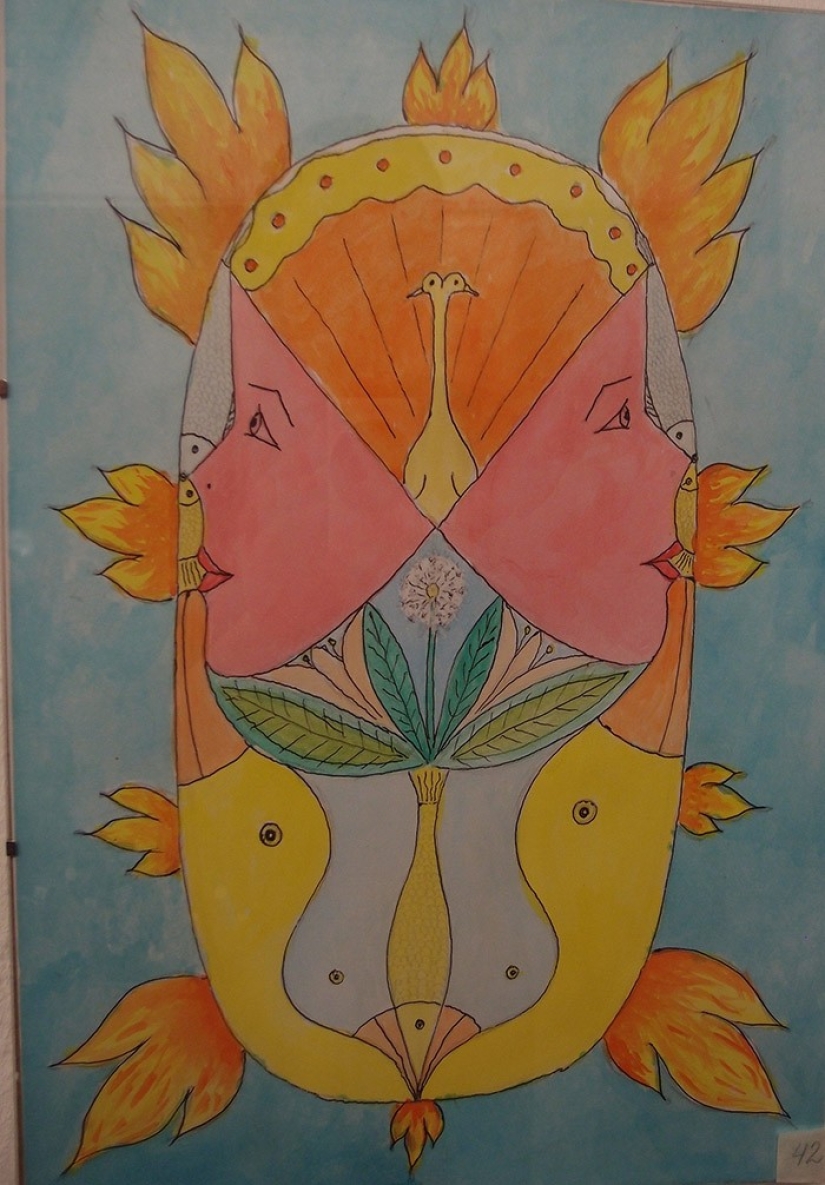
16. The collection of the Darya Evseeva Center in Moscow contains works by contemporary artists from Russia and European countries who write "despite" and "despite" psychiatric experience.
The material was prepared with the support of the Center for the Promotion and Development of Creativity of People Suffering from Mental Disorders, Daria Evseeva evseeva-centre.ru
Keywords: Painting | Paintings | Psychiatry
Post News ArticleRecent articles

It's high time to admit that this whole hipster idea has gone too far. The concept has become so popular that even restaurants have ...

There is a perception that people only use 10% of their brain potential. But the heroes of our review, apparently, found a way to ...
Related articles

Mikhail Vachaev, an artist from Yekaterinburg, is a master with an original style, whose paintings cannot be confused with the ...

Russian artist Andrey Shatilov has chosen a difficult path — he paints oil paintings. In the digital age this commitment to ...

Artists perpetuate the images of his muses in paintings, sculptures and other works. Them they draw inspiration for creativity. ...

New Year's is a time to surprise and delight loved ones not only with gifts but also with a unique presentation of the holiday ...